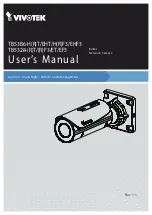
42-6
Cisco ME 3400 Ethernet Access Switch Software Configuration Guide
OL-9639-07
Chapter 42 Configuring IP Multicast Routing
Understanding Cisco’s Implementation of IP Multicast Routing
The IGMP packets from a host wanting to join a multicast stream are forwarded upstream to the next-hop
device when this feature is configured. When the upstream central router receives the helper IGMP
reports or leaves, it adds or removes the interfaces from its outgoing interface list for that group.
For complete syntax and usage information for the
ip igmp
helper-address
command, see the
Cisco IOS
IP and IP Routing Command Reference, Release 12.1
.
Auto-RP
This proprietary feature eliminates the need to manually configure the RP information in every router
and multilayer switch in the network. For Auto-RP to work, you configure a Cisco router or multilayer
switch as the mapping agent. It uses IP multicast to learn which routers or switches in the network are
possible candidate RPs to receive candidate RP announcements. Candidate RPs periodically send
multicast RP-announce messages to a particular group or group range to announce their availability.
Mapping agents listen to these candidate RP announcements and use the information to create entries in
their Group-to-RP mapping caches. Only one mapping cache entry is created for any Group-to-RP range
received, even if multiple candidate RPs are sending RP announcements for the same range. As the
RP-announce messages arrive, the mapping agent selects the router or switch with the highest IP address
as the active RP and stores this RP address in the Group-to-RP mapping cache.
Mapping agents periodically multicast the contents of their Group-to-RP mapping cache. Thus, all
routers and switches automatically discover which RP to use for the groups they support. If a router or
switch fails to receive RP-discovery messages and the Group-to-RP mapping information expires, it
switches to a statically configured RP that was defined with the
ip pim rp-address
global configuration
command. If no statically configured RP exists, the router or switch changes the group to dense-mode
operation.
Multiple RPs serve different group ranges or serve as hot backups of each other.
Bootstrap Router
PIMv2 BSR is another method to distribute group-to-RP mapping information to all PIM routers and
multilayer switches in the network. It eliminates the need to manually configure RP information in every
router and switch in the network. However, instead of using IP multicast to distribute group-to-RP
mapping information, BSR uses hop-by-hop flooding of special BSR messages to distribute the mapping
information.
The BSR is elected from a set of candidate routers and switches in the domain that have been configured
to function as BSRs. The election mechanism is similar to the root-bridge election mechanism used in
bridged LANs. The BSR election is based on the BSR priority of the device contained in the BSR
messages that are sent hop-by-hop through the network. Each BSR device examines the message and
forwards out all interfaces only the message that has either a higher BSR priority than its BSR priority
or the same BSR priority, but with a higher BSR IP address. Using this method, the BSR is elected.
The elected BSR sends BSR messages with a TTL of 1. Neighboring PIMv2 routers or multilayer
switches receive the BSR message and multicast it out all other interfaces (except the one on which it
was received) with a TTL of 1. In this way, BSR messages travel hop-by-hop throughout the PIM
domain. Because BSR messages contain the IP address of the current BSR, the flooding mechanism
enables candidate RPs to automatically learn which device is the elected BSR.
Candidate RPs send candidate RP advertisements showing the group range for which they are
responsible to the BSR, which stores this information in its local candidate-RP cache. The BSR
periodically advertises the contents of this cache in BSR messages to all other PIM devices in the
Summary of Contents for ME 3400 Series
Page 40: ...Contents xl Cisco ME 3400 Ethernet Access Switch Software Configuration Guide OL 9639 07 ...
Page 44: ...xliv Cisco ME 3400 Ethernet Access Switch Software Configuration Guide OL 9639 07 Preface ...
Page 1138: ...Index IN 52 Cisco ME 3400 Ethernet Access Switch Software Configuration Guide OL 9639 07 ...
















































